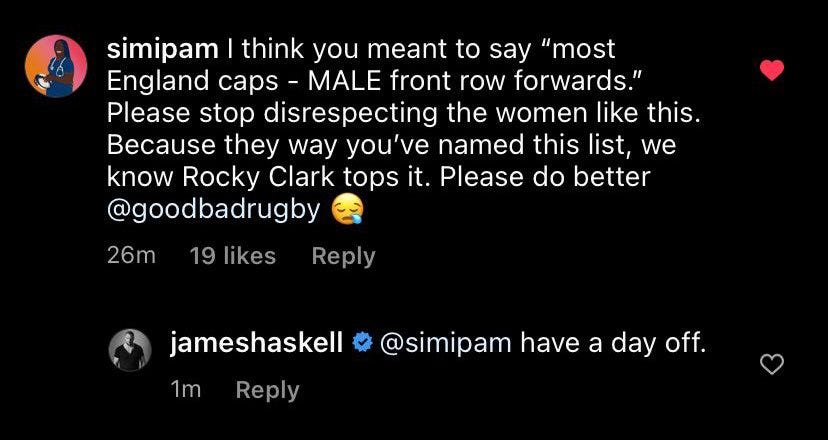Being a good egg
Or at least not a rotten one shouldn't be too much to ask.
Last week, James Haskell said some rubbish things to the lovely Simi Pam after she politely tried to remind people that women exist. You might not know who James is because honestly in Aotearoa, why would you? But picture a guy at the clubrooms who is chanting “Saturday is for the boys!” in his chinos splattered with beer. That’s the vibe.
He has since……


